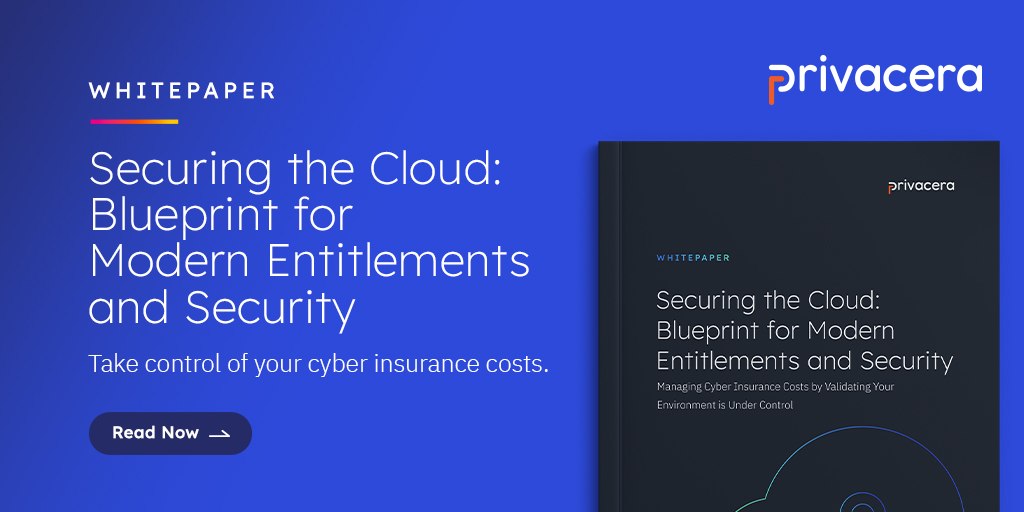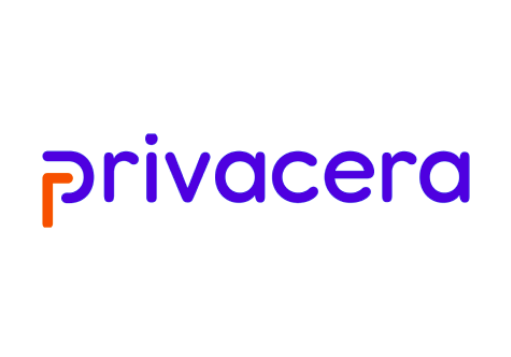In an ever-evolving digital landscape, where data is regarded as the new oil, businesses are grappling with the dual challenge of harnessing data for insights and growth while ensuring its safety, security, and compliance. This calls for robust data governance—an effective framework that governs the availability, usability, integrity, and security of enterprise data. In essence, data governance acts as the custodian of a company’s data kingdom. However, the true data governance value extends far beyond mere custodianship. It fuels innovation, drives efficiency, and enhances security, making data a strategic business asset.
Data Security Governance: The Status Quo
Data governance is intrinsically tied to data security. A well-structured data security governance framework enhances data credibility and reliability, ensuring that only authorized individuals have access to it. Effective data governance serves as the cornerstone of business success in today’s data-driven world.
CISO: Chief Information Security Officer
The Chief Information Security Officer (CISO) is an executive responsible for an organization’s information and data security. While every company has unique needs and challenges, a CISO’s core duties revolve around establishing and implementing a comprehensive data security policy to protect the company’s digital assets and manage data breach risk.
A CISO oversees the creation of data security policies, and coordinates with different departments to ensure compliance. Additionally, they stay updated with the latest security threats and defense measures and leverage this knowledge to fortify the organization’s data protection strategies.
CDAO: Chief Data Analytics Officer
A Chief Data Analytics Officer (CDAO) is another key player who enhances the data governance value. They ensure data accuracy and accessibility, two prerequisites for meaningful data analysis. The CDAO’s role involves setting the data strategy vision, collecting and analyzing data, and leveraging that data to drive business strategy and performance.
An effective CDAO ensures that the right data is available to the right people at the right time, fostering a culture of data-driven decision making. In addition, they work to maintain data quality and integrity, eliminating data silos and promoting data transparency.
IT’s Role in Data Security and Governance
The IT department plays a crucial role in data security and governance. It provides the technical infrastructure necessary to store, process, and analyze vast amounts of data. Furthermore, it implements security controls to protect the data against unauthorized access and breaches.
The IT department also ensures seamless working across data architectures, facilitating data flow across different systems and platforms. By effectively managing these data architectures, the IT department supports the business’s data governance and security efforts, strengthening the organization’s data ecosystem.
What Costs and Opportunities Do We Need To Consider With Data Governance?
The implementation and management of a data governance framework involve costs, but they also unlock multiple opportunities. Understanding these costs and opportunities is crucial for businesses aiming to enhance their data governance value.
Risk From a Data Breach
Data breaches are one of the most significant threats faced by businesses today. The consequences of a data breach can be severe, ranging from financial losses to reputational damage and loss of customer trust. Therefore, reducing data breach risk is a crucial aspect of data governance.
Data governance policies and procedures help minimize data breach risks by enforcing stringent security controls and promoting a culture of data security awareness. An effective data governance framework ensures that sensitive data is adequately protected, preventing unauthorized access and leaks.
Productivity in Governance
Effective data governance can significantly enhance productivity. By ensuring data consistency and reliability, data governance eliminates the time and effort wasted on rectifying data discrepancies and errors. This allows employees to focus on their core tasks, resulting in improved efficiency and productivity.
In addition, by providing a clear overview of the organization’s data landscape, data governance enables faster, more informed decision-making. It ensures that decision-makers have access to accurate, reliable data, allowing them to make strategic decisions that drive business growth.
Empowering Self-Service
Data governance also plays a vital role in promoting data democratization within the organization. By providing a ‘single pane of glass’ view of their data, a robust data governance framework empowers users to access and manage data independently.
This self-service capability not only enhances productivity but also reduces the dependency on IT for data-related tasks. Employees can retrieve, analyze, and make decisions based on data without any delays, thereby accelerating the decision-making process.
Working Across Data Architectures
A data architecture stores and processes data. In today’s digital age, businesses typically employ a variety of data architectures to manage their data. These can range from traditional data warehouses to modern cloud-based systems. Data governance plays a crucial role in ensuring seamless data flow across these different architectures.
By providing a unified view of all data, irrespective of where it is stored, data governance facilitates efficient data management. It allows businesses to leverage their data effectively, driving innovation, operational efficiencies, and competitive advantage.
How Can We Successfully Enforce Data Security Policies Across the Business?
Data security policies are a cornerstone of data governance. However, merely creating these policies is not enough; businesses must also ensure their effective enforcement. Here are some key considerations for successful enforcement of data security policies.
Challenges With a Technical “Policy As Code” Approach
The “Policy As Code” approach offers numerous benefits, including automation, consistency, and scalability. However, implementing this approach can be challenging. It requires a high level of technical skill and understanding, continuous monitoring, and regular updates to ensure the policy remains effective and relevant.
Furthermore, this approach requires extensive coordination between different teams and departments. It’s crucial to ensure everyone understands the policies and their roles in enforcing them. This calls for regular training and awareness programs, as well as a robust communication mechanism.
The Need for a Centralized Location for Governance
A centralized location for governance simplifies the enforcement of data security policies. It provides a unified view of all data assets, making it easier to manage and monitor them. It also enables efficient policy enforcement, as all data can be governed by a single, centralized policy.
A centralized governance location also ensures greater transparency. It allows for easy tracking and reporting of data usage, facilitating compliance with various regulatory requirements. Moreover, it enables faster detection and resolution of data-related issues, enhancing data security and reliability.
Self-Service and Automation for Data Stewards
Automation is another vital aspect of successful data security policy enforcement. By automating routine data governance tasks, businesses can reduce manual efforts, minimize errors, and save valuable time. Automation also ensures consistency in policy enforcement, enhancing the overall data governance value.
Data stewards, the individuals responsible for data management and governance, stand to benefit significantly from automation. It frees them from time-consuming routine tasks, allowing them to focus on strategic, high-value activities. Moreover, it provides them with powerful tools to manage and monitor data effectively, enhancing their productivity and effectiveness.
Emerging Pattern: Balancing Specialized Data Services With Horizontal Data Governance
As businesses increasingly leverage data to drive growth and innovation, they need to balance specialized data services with horizontal data governance. This involves effectively managing and governing data across different domains and systems while ensuring it remains accessible and useful for specialized applications.
Data Ingestion
Data ingestion is the process of collecting, importing, and processing data for later use or storage. In the context of data governance, data ingestion involves ensuring that incoming data is accurate, reliable, and secure. It also involves managing data ingestion from different sources, ensuring that all incoming data is governed by the organization’s data governance policies.
Cloud Data Warehousing
Cloud data warehousing involves storing and managing large volumes of data in the cloud. This offers numerous benefits, including scalability, cost-efficiency, and accessibility. However, it also presents unique data governance challenges. Businesses must ensure that their cloud data warehouses comply with their data governance policies, as well as with any applicable regulations.
Data Science and BI
Data science and business intelligence (BI) involves analyzing data to derive insights and make informed business decisions. They rely on access to accurate, reliable data, making data governance a crucial aspect of their operations.
Data governance ensures that data science and BI teams have access to the data they need while also ensuring that this data is secure and compliant with relevant regulations. This not only enhances the efficiency and effectiveness of these teams but also builds trust in their outputs, leading to more informed and effective decision-making.
6 Must-Have Capabilities of a Data Security Platform (DSP)
An effective Data Security Platform (DSP) plays a crucial role in data governance. Here are six must-have capabilities that businesses should look for in a DSP:
Unified Data Access Controls
The DSP should provide unified access controls for all data, regardless of its location. This ensures consistent access governance, enhancing data security and compliance.
Data Discovery and Classification
The DSP should have robust data discovery and classification capabilities. It should be able to automatically identify and classify data based on various criteria, such as sensitivity and relevance.
Data Masking
The DSP should offer data masking capabilities to protect sensitive data. Data masking involves replacing sensitive data with fictitious data, ensuring its confidentiality while still allowing it to be used for testing and development purposes.
Encryption
The DSP should provide robust data encryption capabilities to protect data, both at rest and in transit. Encryption ensures that even if data is intercepted or accessed without authorization, it remains unintelligible and useless to the attacker.
Data Security and Risk Insights
The DSP should provide comprehensive insights into data security and risk. It should offer visibility into data usage, access, and security incidents, enabling businesses to identify and mitigate risks effectively.
Automation, Workflows, and Policy Orchestration
The DSP should offer automation and workflow capabilities for efficient policy orchestration. It should enable businesses to automate routine data governance tasks, ensuring consistent policy enforcement and reducing manual efforts.
Why Customers Use Privacera
Privacera offers a comprehensive solution for data security and governance, helping businesses unlock the full value of their data. With its wide range of features and capabilities, Privacera can help businesses accelerate their data governance efforts, reduce risks, and drive growth.
Reduced Time to Insight
With Privacera, businesses can reduce the time it takes to derive insights from their data. Privacera’s powerful data governance capabilities ensure that data is accurate, reliable, and readily accessible, enabling faster, more informed decision-making.
Access Governance for All Data
Privacera offers robust access governance capabilities, ensuring that only authorized individuals have access to data. This not only enhances data security but also helps businesses comply with various regulations regarding data access and privacy.
Simplification of Data Security and Privacy Enforcement
Privacera simplifies the enforcement of data security and privacy policies. Its automated capabilities eliminate manual efforts, ensuring consistent policy enforcement. This not only enhances data security and privacy but also frees up time for data stewards to focus on strategic tasks.
Seamless Working Across Different Data Architectures
Privacera facilitates seamless working across different data architectures. It provides a unified view of all data, making it easier to manage and govern data across different systems and platforms. This enhances operational efficiency and enables businesses to leverage their data more effectively.
Accelerate Cloud Migration
Privacera can also help businesses accelerate their cloud migration efforts. It offers robust capabilities for managing and securing cloud data, enabling businesses to migrate their data to the cloud more quickly and securely.
Key Takeaways
In the digital era, maintaining the status quo is not an option. Businesses need to embrace and leverage data governance to secure their data, comply with regulations, drive growth, and stay ahead of the competition.
By accelerating time to insights, enabling faster data/user onboarding, reducing the number of policies, and ensuring compliance and peace of mind, businesses can unlock the full value of their data and turn it into a strategic asset.
Accelerate Cloud Migration, Meet Compliance, and Enable Self-Service Analytics
In conclusion, enhancing the data governance value is not just about securing data—it’s about unlocking its potential. It’s about turning data from a liability into an asset and leveraging it to drive growth, innovation, and competitive advantage.
So, why wait? Start your journey with Privacera today, and take control of your data kingdom. With Privacera, you can accelerate your cloud migration, meet compliance requirements, enable self-service analytics, and much more—all while enhancing your data governance value and staying ahead of the curve. Request a demo to see your data security success in action.





